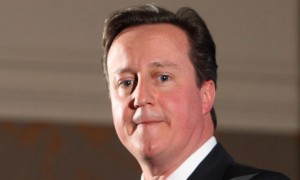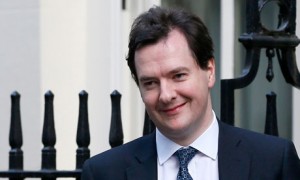When I arrived in Britain, I wrote about feeling certain resonances with past and present struggles here and elsewhere. I have to say that, now I’ve been here longer, those echoes are harder to hear as I get accustomed to the din of the present.
It’s not that things are going so well. The neoliberal government has admitted that its own austerity policy, supposedly designed to reduce state debt, has in fact added £150 billion ($240 bn) to borrowing requirements. As ever, this is advanced as evidence for more cuts in benefits and state institutions.
It seems that the present version of Thatcherism has decided it needs only one of the original two driving forces. Thatcher was devoted to ending the post-1945 settlement, in which redistribution of wealth funded state health, education and retirement programs. The current government is, as Stuart Hall pointed out, far more radical in its ambitions in this area than even the Iron Lady.
The other side to Thatcherism Mark 1 was a resentment from the free-market radicals that they might get into the elite universities or top tier institutions but still not be One of Them. Thatcher cultivated an aggressive cultural politics against such exclusivity, not on the grounds of cultural quality but of free-market access. That has been binned altogether.
The current plump, white, smug and entitled faces of the government are almost parodically upper-class twit of the year, but their palpable sense of entitlement to run the place (into the ground) is just as noticeable.
London is awash with public schoolchildren (meaning private in that UK-way) wearing uniforms and already manifesting the first realization that they are going to get to be in charge.
Last night I went to a panel on the best books of the year organized by the Guardian, in fact actually in the Guardian building, which is just around the corner from the British Library. Both the audience and the panel were white, mostly middle-aged and formidable. Perfectly formed, media-ready paragraphs dropped from each person in turn. Every book was “exquisitely written” and “utterly compelling” but no book of last year apparently had anything at all to say about the political and economic crisis.
One young person did venture to ask a question as to whether e-books–widely disparaged on the panel–did not have the advantage of being cheaper. He has a point. UK books other than mass-market paperbacks are expensive, unless you get them on Amazon–but as the target was the Kindle, what’s the difference? Nonetheless, he was mown down by the cultural institutions: E-books were “perfectly fine for pornography” (BBC), incompatible with “Literature” (Guardian) and just plain wrong (Independent).
I’m sure all these people are appalled by the government and are personally lovely. Not that I have the slightest interest in a Thatcherite culture of monetary value but to watch the cultural consensus swing into action like that was indicative of how the long-standing hierarchies of class objectified as “taste” have restored themselves.
The top ten per cent, especially in London and the South-East, are pulling away from the rest of the country. They own about 50% of the country’s wealth, a massive 850 times greater than the lowest ten per cent. The professional class, who are mostly losing ground in the US. are part of this overall rise but cannot keep up with the wealthiest. In the very top of top one per cent, according to MP Michael Meacher,
The increase in wealth of this richest 1,000 [households] has been £315bn over the last 15 years
Meanwhile about 10% of the country is using payday loans to get by with effective interest rates of 300%.
The Occupy movement in the UK has had its difficulties. Even the current issue of the excellent Occupied Times sees the movement as “splintered and isolated.” Certainly my British friends and family have been, to put it mildly, skeptical about my involvement. The word “crazy” was liberally used by one colleague last week. Nonetheless, it seems to this outsider that the UK needs a radical movement more than ever. More follows.



Rather (responding to Bahar, above), the monarchy is the foundation and first principle of the class-based smug entitlement that Mirzoeff describes.
Of course, you’re both right. I just couldn’t face the monarchism;)
This entry is, sadly yet unavoidably, haunted by the specter of that ultimate embodiment of entrenched power, Royal-Progeny-to-be.